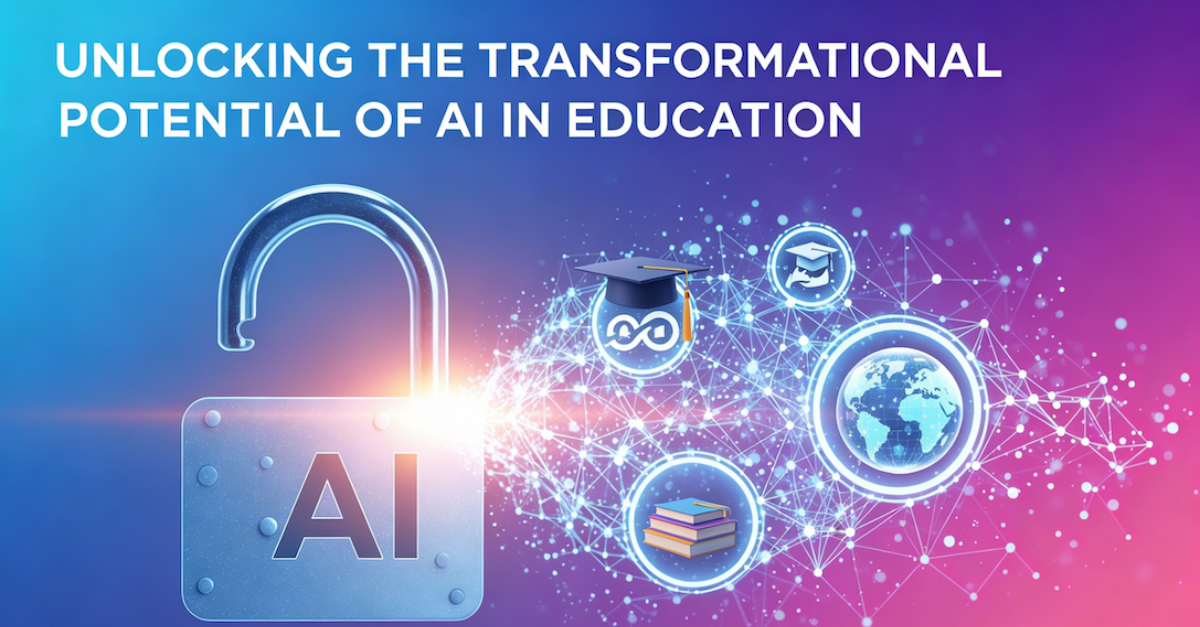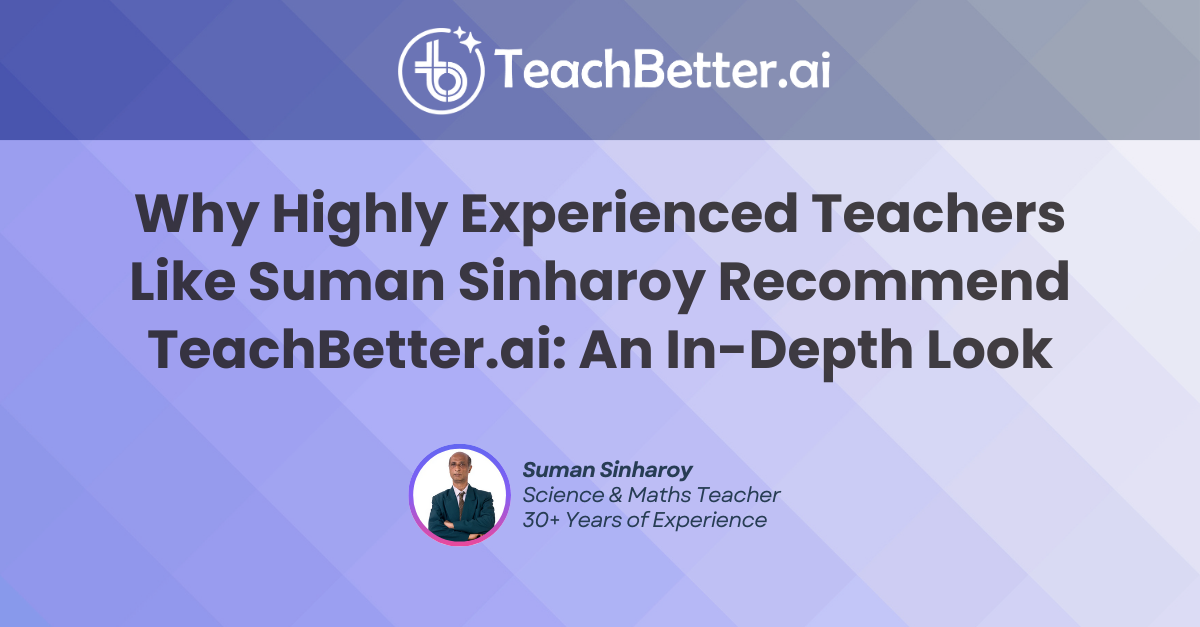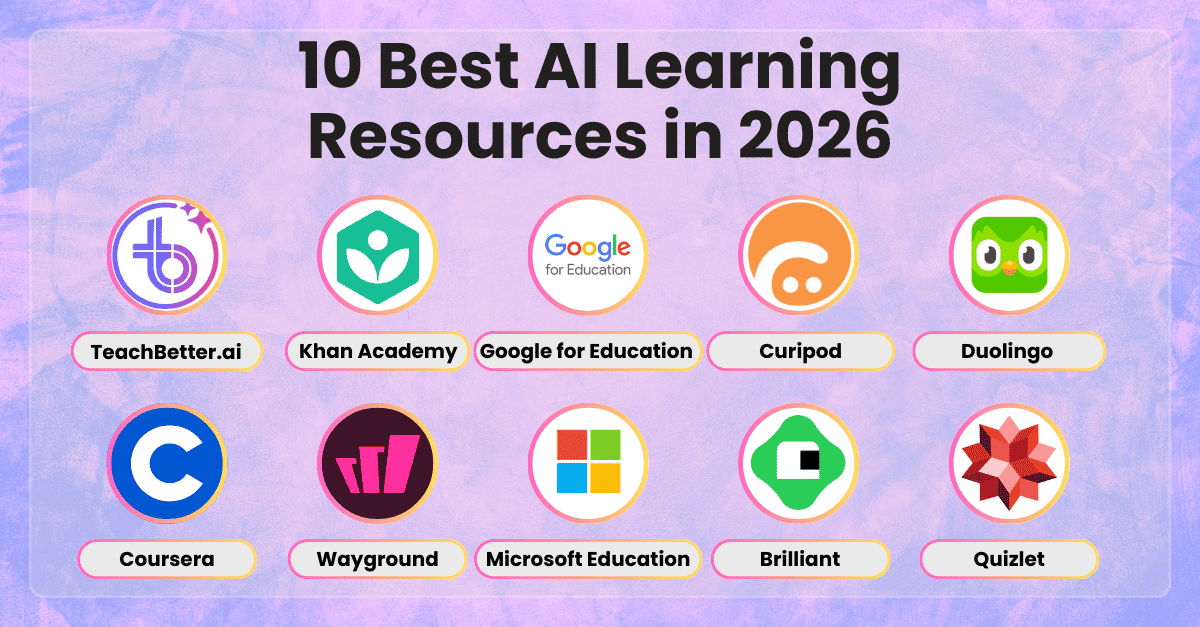The Knowledge Hub
Ethical Considerations for Deploying AI in K-12 Education
TeachBetter.ai
|
2 February, 2025

The transformative power of Artificial Intelligence (AI) in education is undeniable. From automating administrative tasks to enabling personalized learning, AI has the potential to revolutionize classrooms and empower teachers and students alike. However, with great power comes great responsibility. Deploying AI in K-12 education requires thoughtful consideration of its ethical implications to ensure that it fosters inclusivity, fairness, and trust.
This blog explores the critical ethical considerations educators, policymakers, and developers must address as they integrate AI into classrooms. By understanding these concerns, we can shape AI-driven education systems that prioritize students' well-being and uphold the values of equity and transparency.
1. Data Privacy and Security
AI systems in education rely on vast amounts of data, including sensitive information about students' academic performance, behavioral patterns, and personal details. Ensuring data privacy and security is paramount, as breaches or misuse of such information can have severe consequences.
Key considerations:
- Protecting student data from unauthorized access, breaches, or exploitation.
- Ensuring compliance with global and local data protection regulations
- Offering transparent data usage policies that inform parents, students, and educators about how their data is collected, stored, and used.
In our recent survey with nearly 500 educators, 62% of teachers expressed concerns about the potential misuse of student data in AI systems, emphasizing the need for robust data security frameworks.
2. Bias and Fairness
AI systems are only as unbiased as the data they are trained on. If AI algorithms are built on skewed or incomplete datasets, they may inadvertently reinforce existing inequalities or stereotypes.
Key considerations:
- Avoiding biases in AI models that could disadvantage certain demographics, such as students from underprivileged communities or those with special needs.
- Ensuring AI recommendations (e.g., for personalized learning) are equitable and inclusive for all students.
- Regularly auditing AI systems to identify and address bias.
One survey respondent expressed concern, saying, “As an educator, I fear that AI could disproportionately benefit students with greater access to resources, potentially widening the existing achievement gap.”
3. Transparency and Explainability
AI can sometimes function as a "black box," where its decision-making processes are unclear to users. This lack of transparency can lead to mistrust and hesitation in adopting AI tools.
Key considerations:
- Developing AI systems that are explainable and provide clear reasoning for their outputs or recommendations.
- Educating teachers, parents, and students on how AI works and how decisions are made.
- Encouraging open dialogue about the capabilities and limitations of AI in education.
Nearly 70% of respondents in our recent survey highlighted the need for better training and communication about AI's role in the classroom to build trust among stakeholders.
4. Equity and Accessibility
While AI can bridge gaps in education, it can also exacerbate existing inequities if not implemented thoughtfully. Students from underprivileged backgrounds or remote areas may lack access to the devices or infrastructure needed to benefit from AI tools.
Key considerations:
- Ensuring AI platforms are accessible across socio-economic backgrounds, with minimal reliance on costly hardware or internet connectivity.
- Developing offline or low-bandwidth solutions to ensure inclusivity.
- Collaborating with governments and NGOs to fund and distribute AI resources to underserved schools.
One of the teachers rightly highlighted, “AI holds immense potential, but it’s crucial to ensure it doesn’t exacerbate the digital divide. Every child, regardless of their circumstances, deserves equitable access to these tools.”
5. Impact on Teacher Roles and Autonom
While AI can simplify administrative tasks and support instruction, there is a fear that over-reliance on AI might undermine teachers' professional autonomy or reduce their role to mere facilitators of AI-driven learning.
Key considerations:
- Positioning AI as a supportive tool rather than a replacement for teachers.
- Empowering educators to customize and adapt AI-generated outputs to their unique teaching styles and classroom needs.
- Providing professional development opportunities to help teachers effectively integrate AI into their workflows.
58% of teachers surveyed expressed concerns about AI diminishing the importance of human interaction in the classroom, emphasizing the need for a balanced approach.
6. Ethical Use of AI in Student Assessment
AI-powered assessments can provide detailed insights into student performance, but ethical concerns arise regarding the fairness and accuracy of these evaluations.
Key considerations:
- Avoiding over-reliance on AI for grading or assessments, which may overlook qualitative factors like creativity or effort.
- Ensuring that AI-generated feedback is constructive, unbiased, and aligned with educational goals.
- Engaging educators in the evaluation process to provide a human perspective.
A senior educator aptly remarked, “AI can analyze patterns in student performance, but it should never replace a teacher’s judgment in understanding the nuanced complexities of a student’s learning journey.”
Potential Role of TeachBetter AI
At TeachBetter AI, we are committed to building an AI-powered platform that not only enhances teaching efficiency but also adheres to the highest ethical standards. Our platform is being designed to:
- Prioritize Data Privacy: Implement robust encryption and compliance measures to ensure data security.
- Promote Equity: Offer tools that are accessible, scalable, and inclusive, catering to students and educators across diverse backgrounds.
- Foster Collaboration: Empower teachers to use AI as a co-creator of lesson plans, personalized assessments, and creative resources.
- Build Trust: Provide explainable AI outputs and transparent processes to ensure educators feel confident in leveraging our tools.
While the platform is still under development, our vision is to make AI an ethical ally for K-12 education—bridging gaps, empowering educators, and unlocking the potential of every student.
Conclusion: A Collaborative Future for Ethical AI in Education
AI’s role in K-12 education is not just about efficiency or innovation—it’s about creating a more equitable, inclusive, and student-centered learning environment. However, its success hinges on addressing ethical considerations thoughtfully and proactively.
As educators, policymakers, and technology providers, we must collaborate to ensure that AI is deployed responsibly, prioritizing the well-being of students and the empowerment of teachers. With platforms like TeachBetter AI leading the way, we can harness the transformative power of AI while staying true to the core values of education.
Let’s work together to shape a future where technology complements humanity, enriching the teaching-learning process for generations to come.
Stay tuned for updates on TeachBetter AI as we prepare to redefine education, one ethical innovation at a time.
To stay updated on our latest developments, follow us on LinkedIn: https://www.linkedin.com/company/teachbetter/


